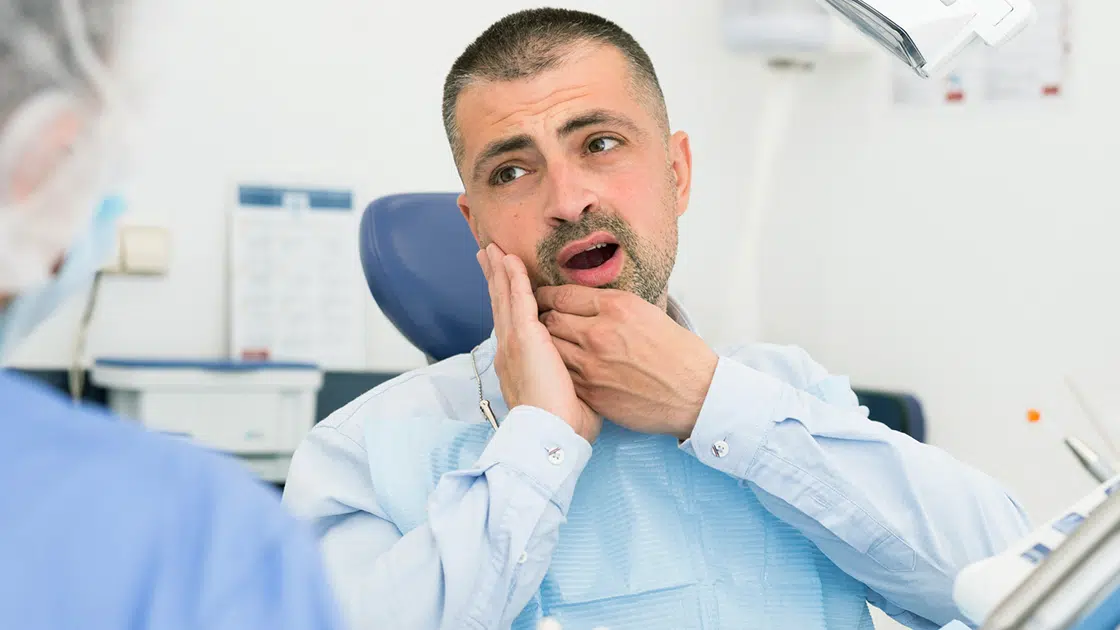
What Is TMJ Disorder Treatment?
TMJ is short for “temporomandibular joint,” or the joint (there are two, one on each side) that operates like a sliding hinge between the lower jawbone and the skull. When pain around this joint flares up, whether in the joint itself or the muscles surrounding it, it could be indicative of a TMJ disorder.
There are many reasons you could experience discomfort from a TMJ disorder and a thorough evaluation can help to determine why this is happening. Typically, TMJ disorders can be categorized as:
- Myofascial pain. Pain or discomfort in the muscles that control the jaw is known as myofascial pain. Bruxism, or teeth grinding, is one of the most common culprits for this type of TMJ disorder.
- Internal derangement of the joint. This form of TMJ disorder comes about if an injury to the joint is sustained, or if a disc becomes displaced or the jaw is dislocated.
- Arthritis. Although arthritis can occur throughout the body, where TMJ is concerned, it means the temporomandibular joint has become inflamed. Inflammation here can lead to pain, tenderness, and a grinding feeling in the joint.
Once your doctor has pinpointed the type and cause of the TMJ disorder you are experiencing, a treatment plan can be established to get relief from the pain. At Santa Clara Oral Surgery and Dental Implants, some of the solutions we may recommend include a combination of self-care and professional dental health care, such as:
- Mouth guards and splints that are custom-made
- Prescription anti-inflammatory medication to help relax the joint
- Treatment for bruxism and the pain caused by grinding or clenching the jaw
- Stretching exercises and relaxation techniques
- Resting the jaw, using ice packs or warm compresses, and eating soft foods
If these treatments do not alleviate or lessen the pain you are experiencing, further procedures that may be necessary include a bite adjustment, orthodontics with or without jaw reconstruction or restorative dental work. TMJ surgery to replace the jaw joint may be required, but this approach is reserved for severe cases only where all previous conservative treatments have failed.
Signs You Need TMJ Disorder Treatment
If you think you might be experiencing TMJ disorder, here are some signs to watch out for:
- Soreness around the joint area
- Soreness or pain in and around the ear
- Headaches
- Pain in the temples or cheeks
- Clicking or popping sounds when the jaw is moving
- Jaw tenderness or pain
- Locking of the jaw
- Pain or difficulty chewing
When TMJ disorders go untreated, they often gradually worsen over time. Whether some or all of these symptoms are affecting you, there is an appropriate treatment option that can provide relief and restore your overall quality of life. Contact our office today to find out how we can help.
Why Choose Santa Clara Oral Surgery & Dental Implants?
Don’t let fear of the unknown stand in the way of addressing your TMJ disorder. At Santa Clara Oral Surgery and Dental Implants, you can rest assured that you are in good hands. When we say we do dental differently, we mean it. Our modern approach employs highly advanced technology and techniques aimed at providing you the most relief with the least invasive treatment. Our team is dedicated to putting our patients at ease and creating the best plan to resolve your TMJ disorder.
TMJ Disorder Treatment FAQs
Often, patients experience the onset of TMJ symptoms during very stressful times. High stress can often lead to grinding your teeth at night, thus putting stress on the joint and wearing down the teeth. Some patients find relief through managing or reducing their stress with mindful meditation or using a calming app at bedtime to sleep more peacefully. However, for moderate to severe TMJ disorders, treatment is usually required to resolve the condition.
Schedule a Consultation
Contact us today to learn more about sedation or to schedule a consultation at the location nearest you.

